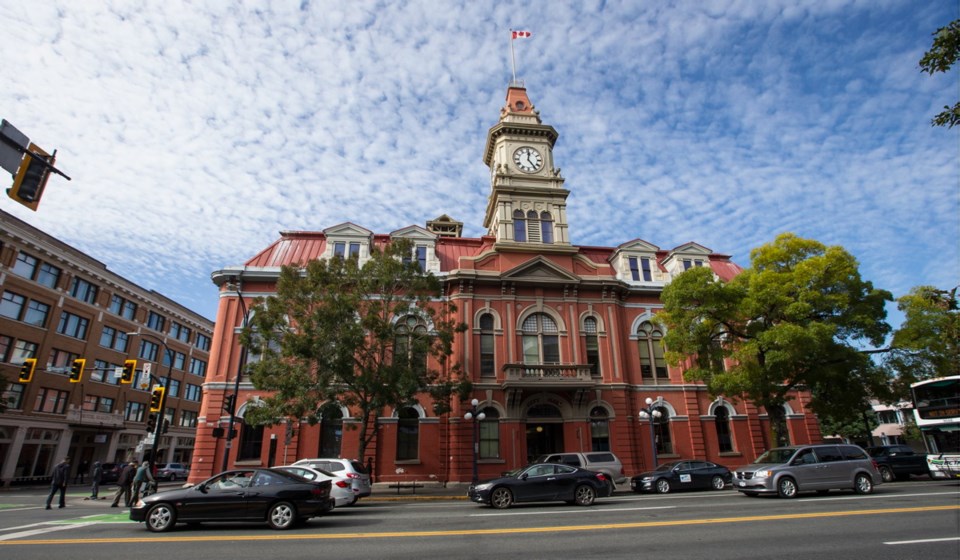A proposal to boost the pay of Victoria councillors by more than 50 per cent was soundly rejected by respondents to the city’s budget survey, a new report shows.
Of the more than 5,000 people who participated in the online survey, 86 per cent said they “strongly disagreed” with increasing councillors’ remuneration to $70,100 a year — the same as the median income of a city employee, excluding police officers and firefighters.
The increase would result in a raise of about $25,700 per councillor and cost the city about $205,600 a year, the survey said.
Councillors are currently paid $45,384 with an annual increase tied to inflation, according to figures provided by the city.
Coun. Ben Isitt pitched the idea of tying councillors’ salaries to those of full-time city employees, arguing that councillors are spending up to 60 hours a week on city business.
The proposal was criticized by some, including the Greater Victoria Chamber of Commerce, which said councillors have over-expanded their roles and turned what should be a part-time job into full-time work.
A staff report going before committee of the whole on Thursday notes that the online budget survey was not a representative sample of Victoria residents, but reflected the views of those “who became aware of the survey and decided to complete it.”
Overall, survey respondents said city spending was “just right” in most areas, with the exception of the Victoria Police Department, where 67 per cent said spending was “too low.”
Asked how the city should spend new property-tax revenue from residential and commercial developments, 55 per cent of respondents said it should be used to reduce the tax increase, while 16 per cent said it should be invested in new initiatives.
Most respondents said any surplus should be saved for future infrastructure investment.
The survey and other public consultations, including a town-hall meeting last month, were expected to help inform councillors as they head into budget talks in January. Council has to sign off on the city’s financial plan by May 15.
A draft of the 2020 budget proposes spending of $258.7 million to operate more than 200 programs and services, while investing $42.1 million in capital projects.
If approved, the budgets would require a property-tax increase of $4.68 million or 3.35 per cent.
When combined with utility fees, the total increase would be 3.32 per cent for the average homeowner and 3.26 per cent for the typical business.
According to figures provided by the city, the average residential home assessed at $805,000 would see property taxes and utility fees rise by $116 to $3,605. The increase includes $85 for property taxes, $17 for water, $8 for solid waste, $4 for sewer and $2 for stormwater.
A typical small business assessed at $644,000 would see its property taxes and utility fees climb by $263 to $8,328.
Council still has to decide how to spend an estimated surplus of about $3 million as well as $2.5 million in new property-tax revenue from new development. It can use the money to reduce taxes, increase services or invest in capital projects.
Some of the new assessed revenue has already been allocated, with $500,000 going to the buildings and infrastructure reserve and $234,000 earmarked for community and senior centres.



